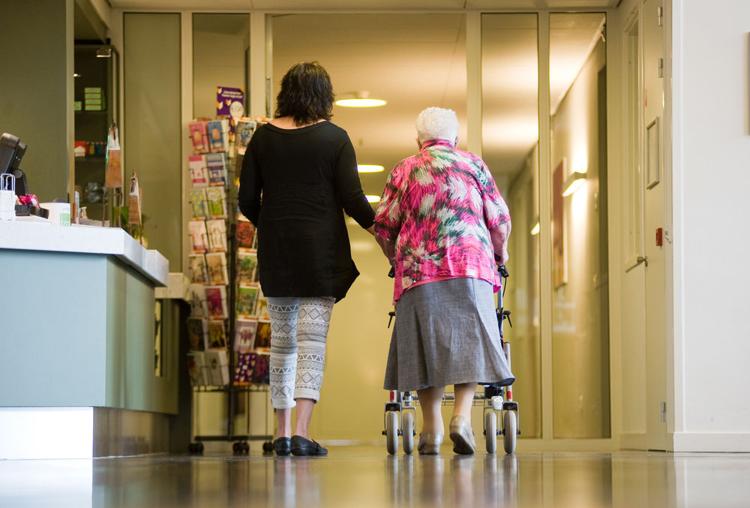Michigan House passes bill prohibiting sending COVID-19 patients to nursing homes

Robert Hoetink | Shutterstock.com
(The Center Square) – The Michigan House approved a bill with the stated purpose of better protecting Michigan’s nursing home population from COVID-19.
Senate Bill 956 seeks to prohibit the admission of COVID-19 patients into nursing homes.
The Senate passed the legislation, sponsored by Sen. Peter Lucido, R-Shelby, on June 24.
The bill requires the Department of Health and Human Services (MDHHS), working with the Department of Licensing and Regulatory Affairs, to evaluate each of the regional nursing hubs’ outcomes and report to lawmakers by August 15.
The two agencies would also have to develop a plan based on guidance from the Centers of Disease Control and Prevention to form at least one dedicated COVID-19 facility in each of eight regions by Sept. 1.
Starting on that date, COVID-19 patients couldn’t be admitted or retained in a nursing home unless the patient had recovered or the facility could provide a physically separate building.
Rebecca Copf, M.D., backed the bill in a committee hearing last week, saying that staff workers can spread SARS-CoV-2 when working with infected and uninfected patients.
“The best and most obvious change to protect the most vulnerable seniors is to stop placing contagious COVID-positive patients with them, and thus avoid the risk of contamination,” Copf said.
Rep. Leslie Love, D-Detroit, agreed that the state “failed” to protect nursing home residents from COVID-19 but called the bill a “flea flicker.”
Love argued the bill didn’t solve the problems, saying one regional facility for Southeast Michigan, the hardest-hit region, wouldn’t be enough to house all patients.
Love said the bill language was vague, and its timeline didn’t allow enough for the government agencies to complete the work properly.
The language would force COVID-19 positive patients to go to a designated facility and bar them from going to a private residence, Love said, and that facility may mix patients with varying mental states, including those with depression and those with dementia.
“It’s not how we should be handling our seniors,” Love said.
Rep. Luke Meerman, R-Coopersville, argued that Gov. Gretchen Whitmer erred in initially ordering COVID-19 patients into nursing homes, contending it spread the virus to the most vulnerable population and “contributed to nearly 2,000 preventable and unnecessary deaths.”
Meerman said the legislature dedicated $16 million to placing COVID-19 patients in isolated facilities with more than 2,000 beds, but less than 100 were filled.
MDHHS previously told The Center Square they declined housing COVID-19 patients in field hospitals designed for short-term care because those facilities didn’t provide amenities for vulnerable citizens, such as handrails to walk and advanced medical equipment.
COVID-19 rocked Michigan’s nursing home population, killing 1,983 residents and 21 staff members, according to state data undergoing validation.
Some facilities saw no reported COVID-19 cases, while the virus killed as many as 41 residents in other facilities.
Right to Life of Michigan supports the bill while Leading Age Michigan took a neutral position.
Whitmer in June created a Nursing Homes COVID-19 Preparedness Task Force to analyze nursing home data and make recommendations by Aug. 31.
The Foundation for Research on Equal Opportunity estimated that nursing homes and assisted living facilities account for 45 percent of the COVID-19 deaths across the nation.
The coronavirus has disproportionately harmed older people. In Michigan, 87 percent of those killed by COVID-19 were 60 years of age or older.

